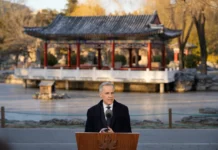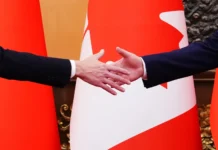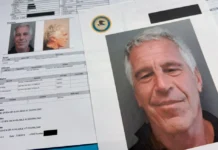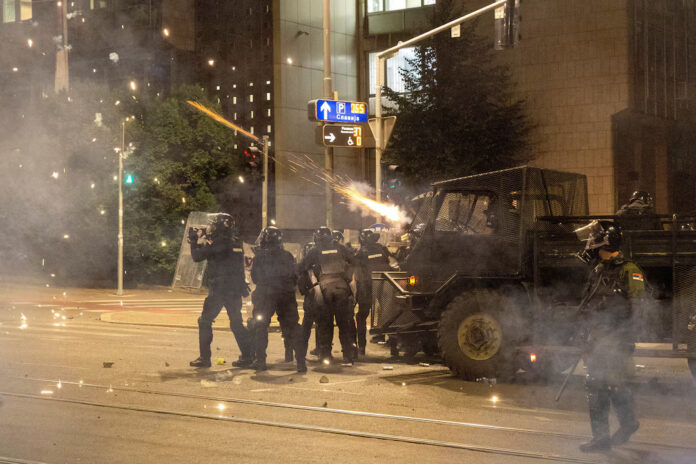
Serbian police fired teargas and deployed crowd-control vehicles in Belgrade on Friday evening to disperse anti-government demonstrators, marking a sharp escalation in the nine-month-long protests rocking the country.
Clashes broke out after several thousand protesters gathered outside the army headquarters building, which was bombed by NATO in 1999. By late evening, some demonstrators hurled firecrackers and flares at officers, overturned trash containers, and set fires, including one that ignited a tree. Police responded with teargas to push back the crowds.
Similar demonstrations took place in other towns, including Novi Sad, Nis, Kragujevac, and Valjevo, with reports of teargas also being used in Nis. Authorities have not released figures on injuries, though unrest earlier in the week left 27 police officers and about 80 civilians wounded, with 47 people detained.
The protests were sparked by outrage over the collapse of the roof at a renovated railway station in Novi Sad, which killed 16 people. Demonstrators accuse President Aleksandar Vucic’s ruling Serbian Progressive Party (SNS) of corruption and negligence, demanding early elections to remove him from power.
“Every evening we deploy 3,000 policemen across Serbia, they are being beaten and they are being injured,” Vucic said in an interview with RTS TV earlier on Friday, defending the government’s response.
Protesters, including students, opposition groups, and anti-corruption activists, have accused Vucic of fostering ties with organized crime, stifling media freedoms, and using violence against rivals, charges the government denies.
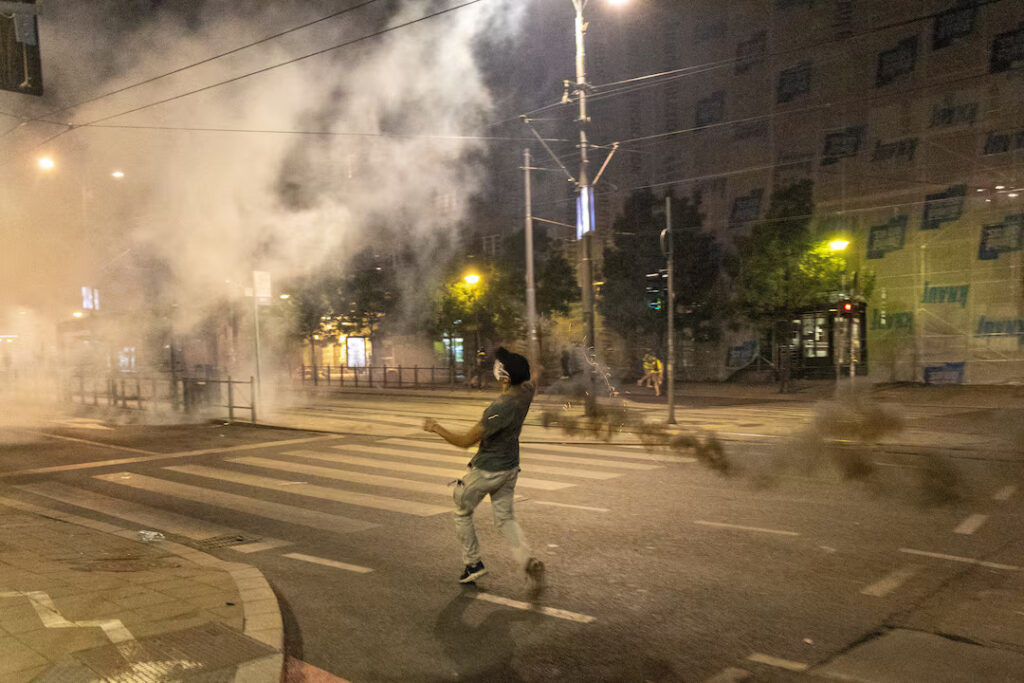
An anti-government protester throws flares at riot police during clashes in Belgrade, Serbia, August 15, 2025. REUTERS/Djordje Kojadinovic
International concern over the authorities’ handling of the unrest is growing. Michael O’Flaherty, Commissioner for Human Rights at the Council of Europe, condemned what he called disproportionate police force in Valjevo.
“I deplore the police’s disproportionate force … and reiterate my call on the authorities to avoid excessive force, end arbitrary arrests, and de-escalate the situation,” he wrote in a statement.
The protests, once largely peaceful, now appear to be entering a more confrontational phase, deepening the political crisis confronting Serbia’s leadership.
Written By Rodney Mbua












